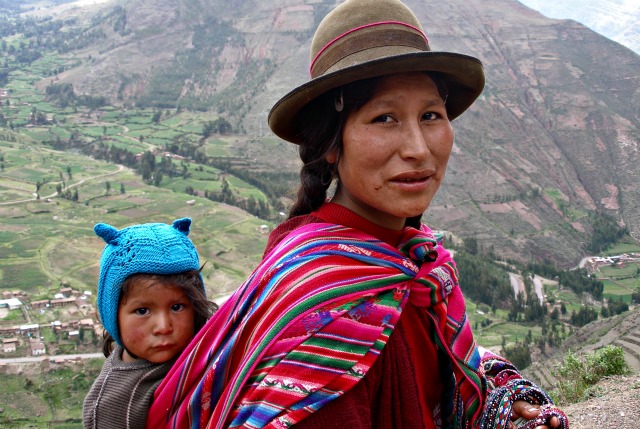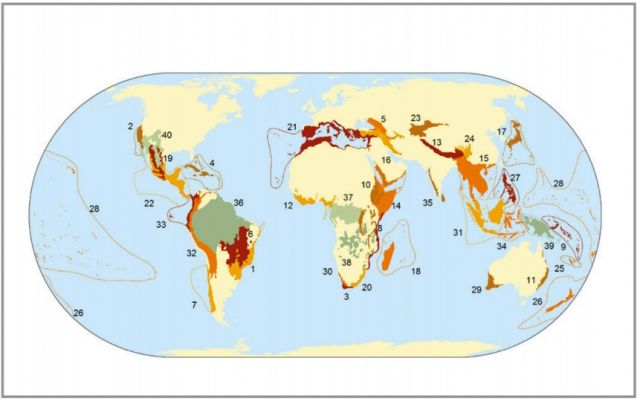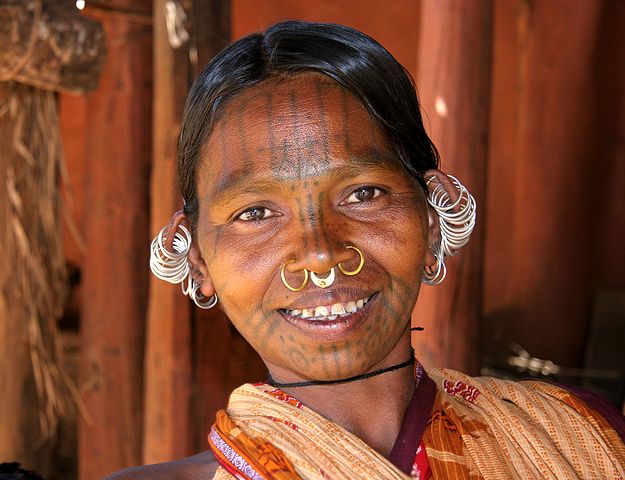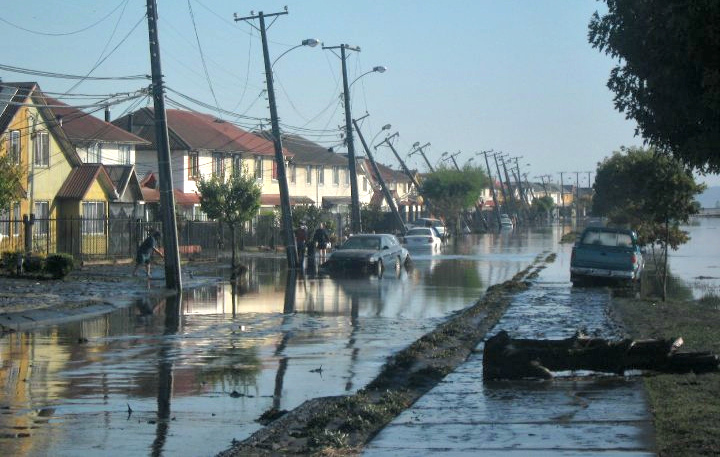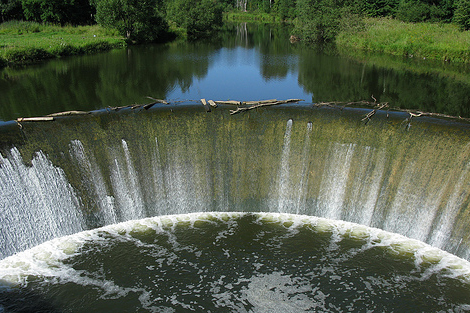Quechua woman and child, Peru: quinet via Wikimedia Commons
A new paper in PNAS finds that 70 percent of the world’s languages are found within Earth’s most biologically diverse regions.
Earlier studies suggested there was probably a lot of overlap between areas of high biological diversity and areas of high linguistic diversity. But data were limited.
In the new study, the authors used recently compiled global data showing the geographic locations of more than 6,900 languages compiled for geographic information system (GIS) applications by Global Mapping International. They used the locations of biodiversity hotspots and high biodiversity wilderness areas compiled by Conservation International.
Their findings:
- The languages in biodiverse hotspots are frequently unique to their particular regions
- Many of these endemic languages also face extinction
Biodiversity hotspots map: L. J. Gorenflo, et al. PNAS. DOI:10.1073/pnas.1117511109
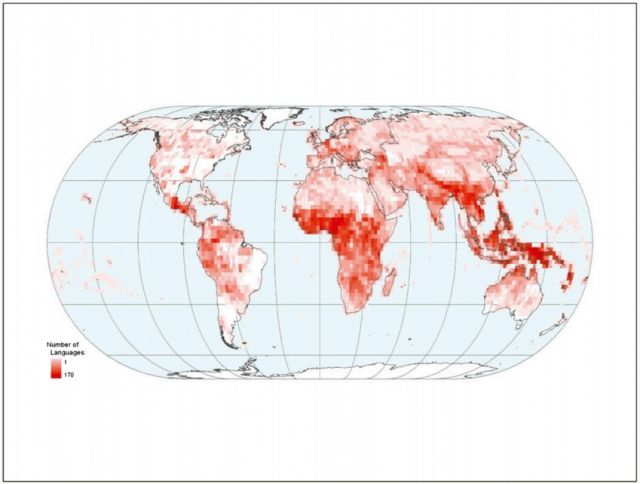 Geographic distribution of indigenous and nonmigrant languages in 2009. (Click map for larger version): L. J. Gorenflo, et al. PNAS. DOI:10.1073/pnas.1117511109
Geographic distribution of indigenous and nonmigrant languages in 2009. (Click map for larger version): L. J. Gorenflo, et al. PNAS. DOI:10.1073/pnas.1117511109
The researchers examined 35 biodiversity hotspots—locations with an exceptionally high number of endemic species, which have lost 70 percent or more of their habitat (top map, above). These hotspots comprise only 2.3 percent of the Earth’s surface, yet contain more than half the world’s vascular plants and 43 percent of its terrestrial vertebrate species. They also contain people speaking 3,202 languages—nearly half of all languages spoken on Earth (bottom map, above).
The team also examined linguistic diversity in five high biodiversity wilderness areas—places whose remaining habitat covers ~6.1 percent of Earth’s surface and contains about 17 percent of the vascular plants and 6 percent of the terrestrial vertebrate species. These biodiversity wilderness areas are also home to people speaking another 1,622 languages.
“In many cases it appears that conditions that wipe out species wipe out languages,” says lead author Larry Gorenflo at Penn State Department of Landscape Architecture, and affiliated with Penn’s Institutes of Energy and Environment. “I think it argues for concerted conservation efforts that are integrated and try to maintain biodiversity and cultural diversity.”
From the paper:
Given the capacity of humans to dominate, and in many cases eradicate, other species on our planet, the importance of the relationship between people and the natural environments they inhabit cannot be overstated for biodiversity conservation. Unfortunately, the opportunity to enlist speakers of particular languages in biodiversity conservation is rapidly disappearing as languages are lost at an alarming rate. Although linguists have attempted to identify languages in danger of disappearance, no system of language ranking in terms of risk can claim the broad attention and authority enjoyed by the IUCN Red List, the main means of evaluating the conditions of species.
Kutia Kondh woman, Odisha, India: PICQ via Wikimedia Commons
As for why the coexistence between areas with high concentrations of endangered species and endangered languages, the researchers aren’t sure. But possibly because indigenous cultures, supported by their languages, create conditions optimum to maintaining species and keeping ecosystems intact and working.
The open-access paper:
- L. J. Gorenflo, Suzanne Romaine, Russell A. Mittermeier, and Kristen Walker-Painemilla. Co-occurrence of linguistic and biological diversity in biodiversity hotspots and high biodiversity wilderness areas. PNAS. DOI:10.1073/pnas.1117511109
